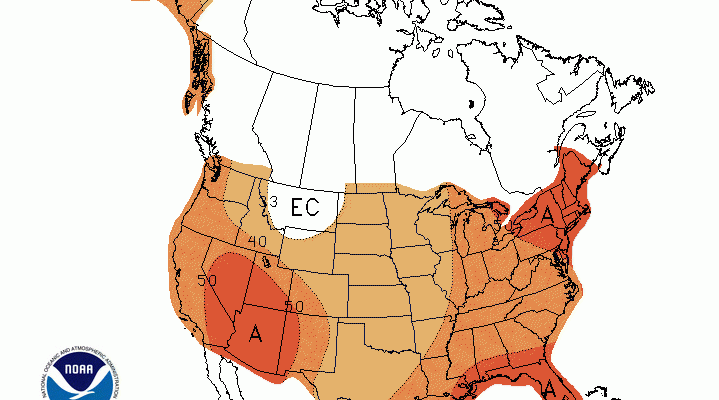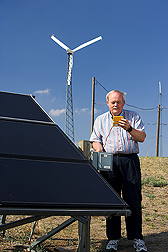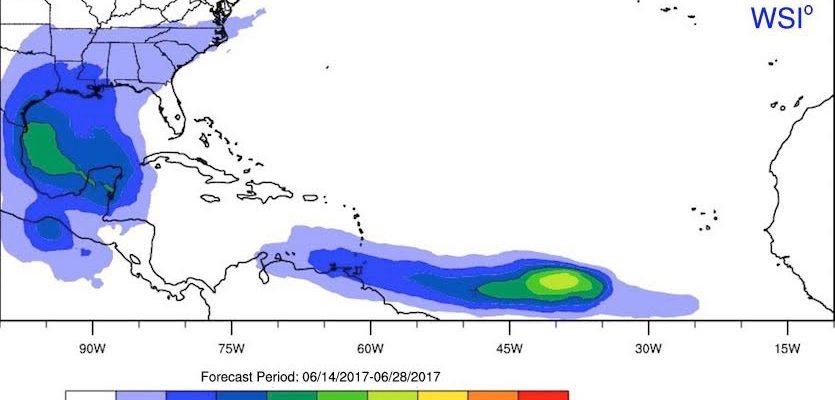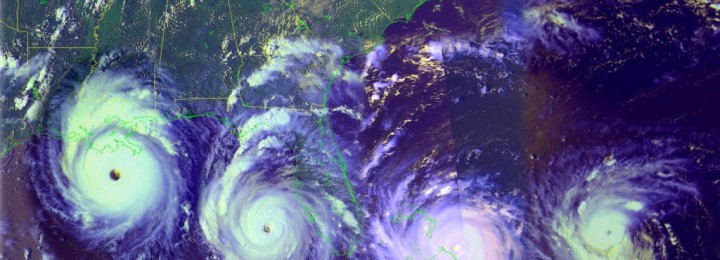-

The latest NOAA outlook for July and for July through September 2017 show that for both the one- and three-month temperatures, there is an increased chance of above normal temperatures across the Southeast but especially in south Florida. Equal chances of above, near or below precipitation amounts covers the Southeast, indicating no good climate signals…
Posted in: Climate outlooks -

The significant rains that parts of the Southeast has seen this past week or two have put a significant dent in the drought across the region. Severe drought has been completely removed from Florida and remains only in a reduced area of southwest Georgia. Other dry areas have also been improved, although some lingering moderate…
Posted in: Drought -

At 2 pm EDT today June 15, the Northeast Climate Hub will present a webinar on farm strategies for maximizing energy design and efficiency. According to their web site, “Participants will learn how energy-oriented design and operation can impact the resilience (the capacity to recover quickly from challenges) and long term success of farm operations,…
Posted in: Events -

The Capital Weather Gang posted a story about the intense heat that is coming to the Southwest US next week, with temperatures 12-15 degrees above normal, which will be close to setting records. In Phoenix, temperatures are expected to reach 110-120 degrees. The hottest temperature ever at Phoenix Sky Harbor airport was 122 on June…
Posted in: Climate and Ag in the news -

Even though we are only a few weeks into the Atlantic tropical season, today there are two potential areas of development. One is in the western Gulf of Mexico and is projected as a possible storm from a system that may be forming in the eastern Pacific Ocean and may cross over Mexico into the…
-

There have been many stories published about the upcoming solar eclipse in August 2017, which will be visible across the Southeast. You can see a movie of what it will look like at your location by going to https://eclipsemega.movie/simulator?lat=31.45046290000001&lng=-83.50849729999999 and entering your location in the box.
-

In 2004 a tornado associated with Hurricane Ivan hit Athens, GA, hundreds of miles away from the center of the storm. You may be surprised to know that many hurricanes have tornadoes associated with them, both in the spiral arms outside of the center of the storm and in the eye wall. Most of them…